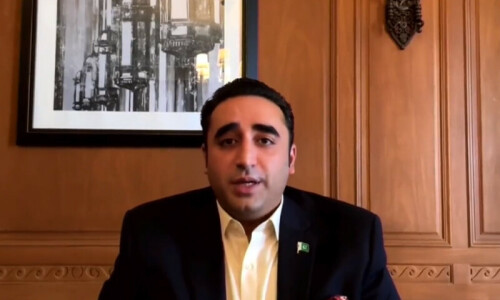A 32-year-old man, who sparked condemnation from Israel for his plans to burn a Torah in Stockholm, on Saturday said he was not going to go ahead with his protest.
He explained that his intention was in fact to denounce those who burn sacred books such as the Holy Quran in the Nordic country.
Swedish police on Friday said they had granted a permit for a protest which was to include the burning of the Torah and the Bible outside the Israeli embassy in Stockholm.
Israel’s President Isaac Herzog was one of several Israeli representatives and Jewish organisations to immediately condemn the decision.
Ahmad A, the organiser of the demonstration, explained that his aim actually was not to burn the holy books but to criticise the people who have desecrated copies of the Holy Quran in Sweden in recent months, something that Swedish law does not prohibit.
“This is a response to the people who burn the [Holy] Quran. I want to show that freedom of expression has limits that must be taken into account,” explained the Swedish resident of Syrian origin.
“I want to show that we have to respect each other, we live in the same society. If I burn the Torah, another Bible, another [Holy] Quran, there will be war here. What I wanted to show is that it’s not right to do it,” he added.
In January, Swedish-Danish right-wing extremist Rasmus Paludan burned a copy of the Holy Quran to denounce Sweden’s membership application to Nato and the negotiations with Turkey to allow Sweden to join the alliance.
On June 28, an Iraqi refugee in Sweden burnt some pages of a copy of the Holy Quran in front of Stockholm’s largest mosque during Eidul Azha.
The two events triggered a series of condemnations in the Muslim world and elsewhere.
Although the Swedish police pointed out that permission to demonstrate was not a formal authorisation to burn a sacred book, there is no law prohibiting the burning of holy books in the country.
But the police can refuse to allow a demonstration if it jeopardises security or gives rise to acts or words that incite racial hatred.
Pakistan condemns permission for burning holy books
Meanwhile, the Foreign Office (FO) condemned the permission granted for burning the holy books.
“Offensive acts of religious hatred cannot be condoned in the guise of freedom of expression and opinion,” the FO said, adding that Islam called for respect for all religions, sacred personalities and holy scriptures.
“In line with this Islamic ethos, Pakistan has always stressed the need to advance mutual respect, harmony and peaceful coexistence among religions, faiths and cultures.
“We call on the international community to condemn, with one voice, all such abhorrent acts of religious hatred, which hurt the sentiments of its followers and constitute deliberate incitement,” the FO said.














































Dear visitor, the comments section is undergoing an overhaul and will return soon.